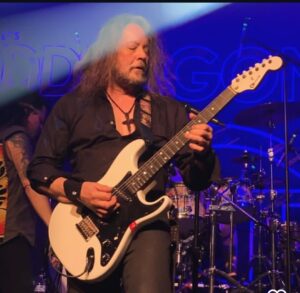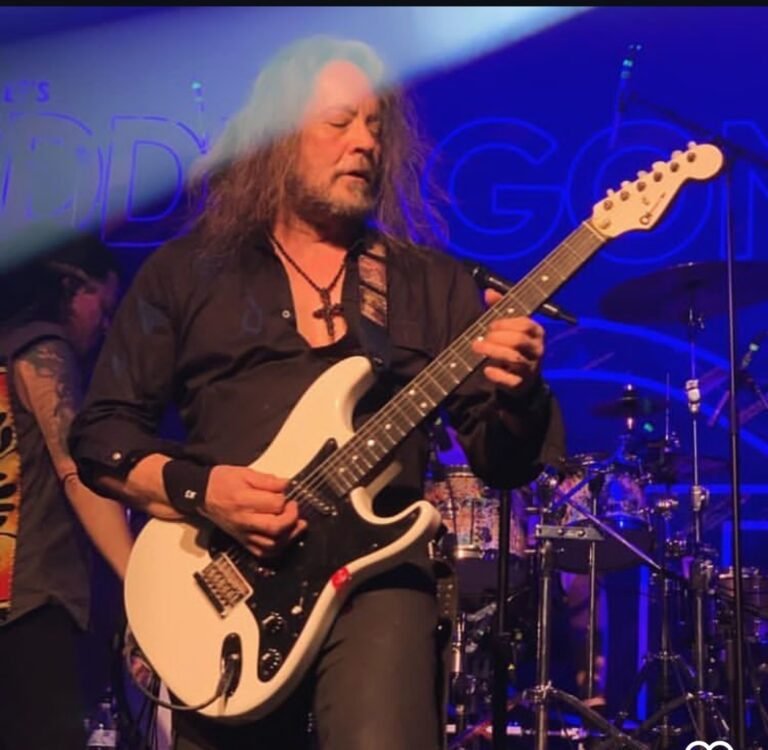In a candid reflection on his storied career, guitarist Jake E. Lee has opened up about the mounting creative tensions that defined his later tenure with Ozzy Osbourne’s band, contrasting sharply with the artistic emancipation he found in his subsequent project, Badlands.
Lee, who stepped into the spotlight as Ozzy’s lead guitarist in the early 1980s after the tragic loss of Randy Rhoads, played a pivotal role in shaping the Prince of Darkness’s solo sound. His contributions to landmark albums Bark at the Moon (1983) and The Ultimate Sin (1986) infused the tracks with a signature blend of melodic finesse and raw aggression, helping propel Osbourne’s post-Black Sabbath career to new heights. Tracks like “Bark at the Moon” and “Shot in the Dark” showcased Lee’s technical prowess and innovative riffs, earning him a dedicated following in the heavy metal pantheon.
However, as the decade wore on, Lee’s enthusiasm waned under the weight of what he describes as an increasingly formulaic approach to songwriting. In recent interviews, the 67-year-old musician revealed that the collaborative spirit that initially fueled the band had eroded into a more prescriptive process, where individual expression took a backseat to commercial expectations. “Toward the end of The Ultimate Sin, I started to feel like I couldn’t express myself fully,” Lee shared. “Everything had to fit a certain formula. It stopped feeling like music and started feeling like a job.”
Despite his enduring admiration for Osbourne and the loyal fanbase that embraced their work, Lee felt constrained by the rigid oversight on musical direction. The once-thrilling environment of experimentation gave way to a sense of stagnation, prompting him to exit the lineup in the mid-1980s. “I still respect Ozzy immensely, and the fans were incredible,” Lee noted. “But I needed room to breathe and explore what really moved me.”
Seeking that very liberation, Lee channeled his energies into Badlands, the blues-infused hard rock outfit he co-founded in 1988 with powerhouse vocalist Ray Gillen and drummer Eric Singer (later of Kiss fame). The band’s self-titled debut album, released in 1989, marked a deliberate pivot away from the polished, arena-ready metal of his Ozzy days. Instead, Badlands delved into gritty, soulful territory, drawing on Lee’s deep-seated influences from blues legends like B.B. King and Stevie Ray Vaughan.
This shift proved transformative. Free from external mandates, Lee co-wrote much of the material, allowing his guitar work to roam with unbridled authenticity. The result was a raw, emotive sound that resonated with critics and fans alike, yielding hits like “High Wire” and “Dreams in the Dark.” “Badlands was my reset,” Lee reflected. “It let me strip things back to the blues roots that got me playing in the first place—no filters, just pure energy and heart.”
Though Badlands disbanded in the early 1990s following Gillen’s untimely death, its legacy endures as a testament to Lee’s unyielding pursuit of artistic integrity. Today, as he continues to tour and record independently, Lee looks back on that chapter not with regret, but as a crucial turning point. “Leaving Ozzy was tough, but it opened the door to something real,” he said. “Freedom in music isn’t handed to you—sometimes, you have to walk away to find it.”
For aspiring musicians navigating the highs and lows of band dynamics, Lee’s story serves as a poignant reminder: true fulfillment often lies beyond the spotlight, in the courage to chase one’s own rhythm.
